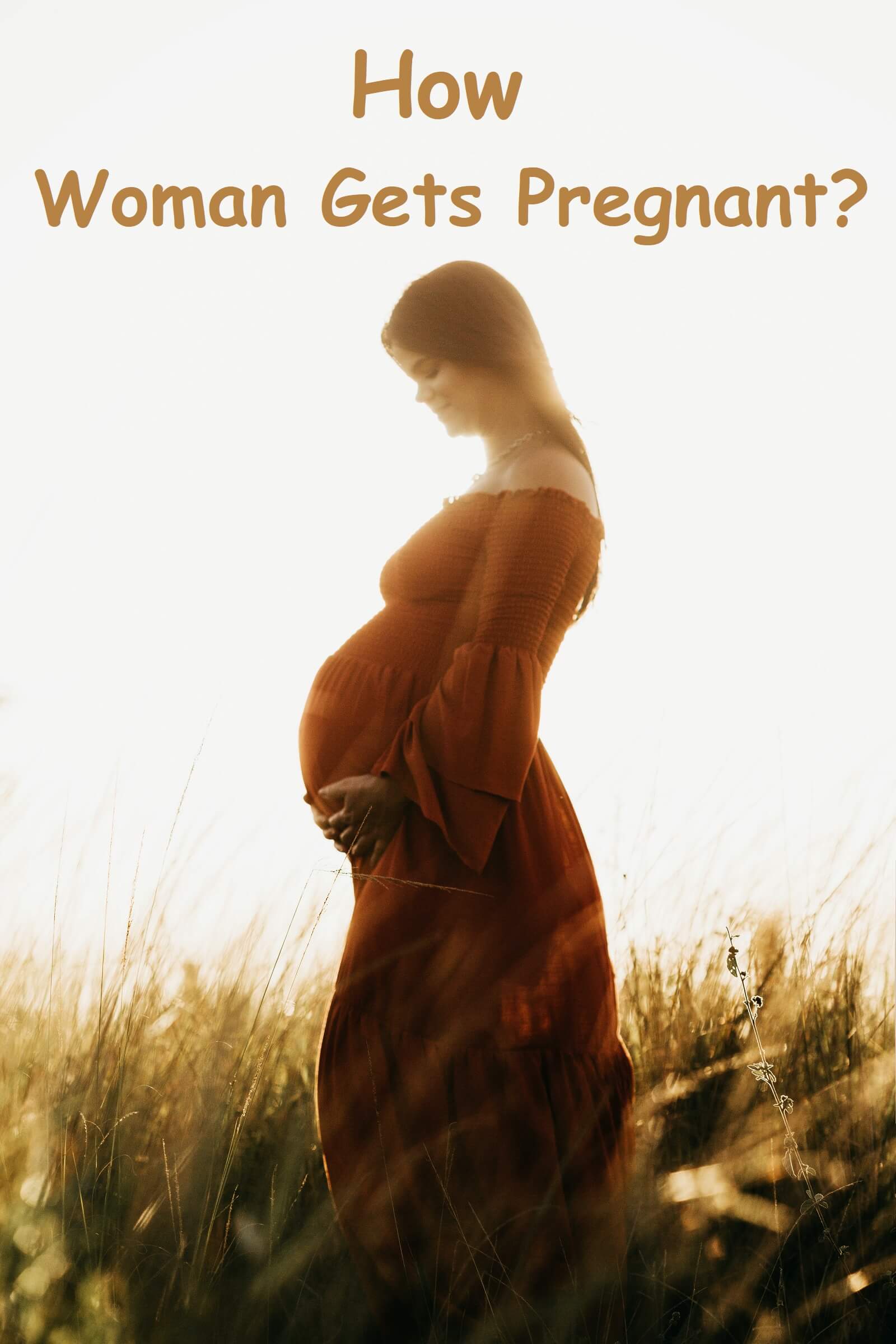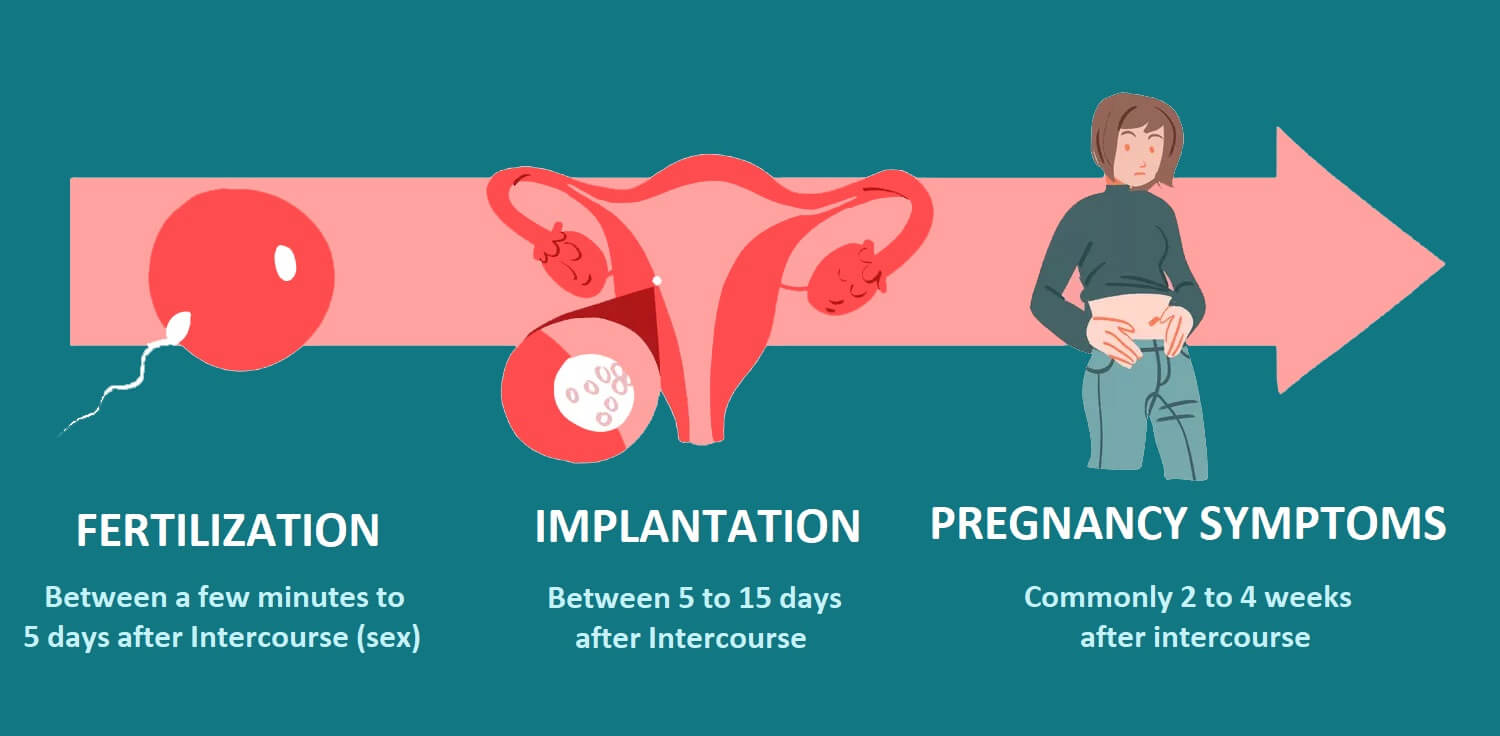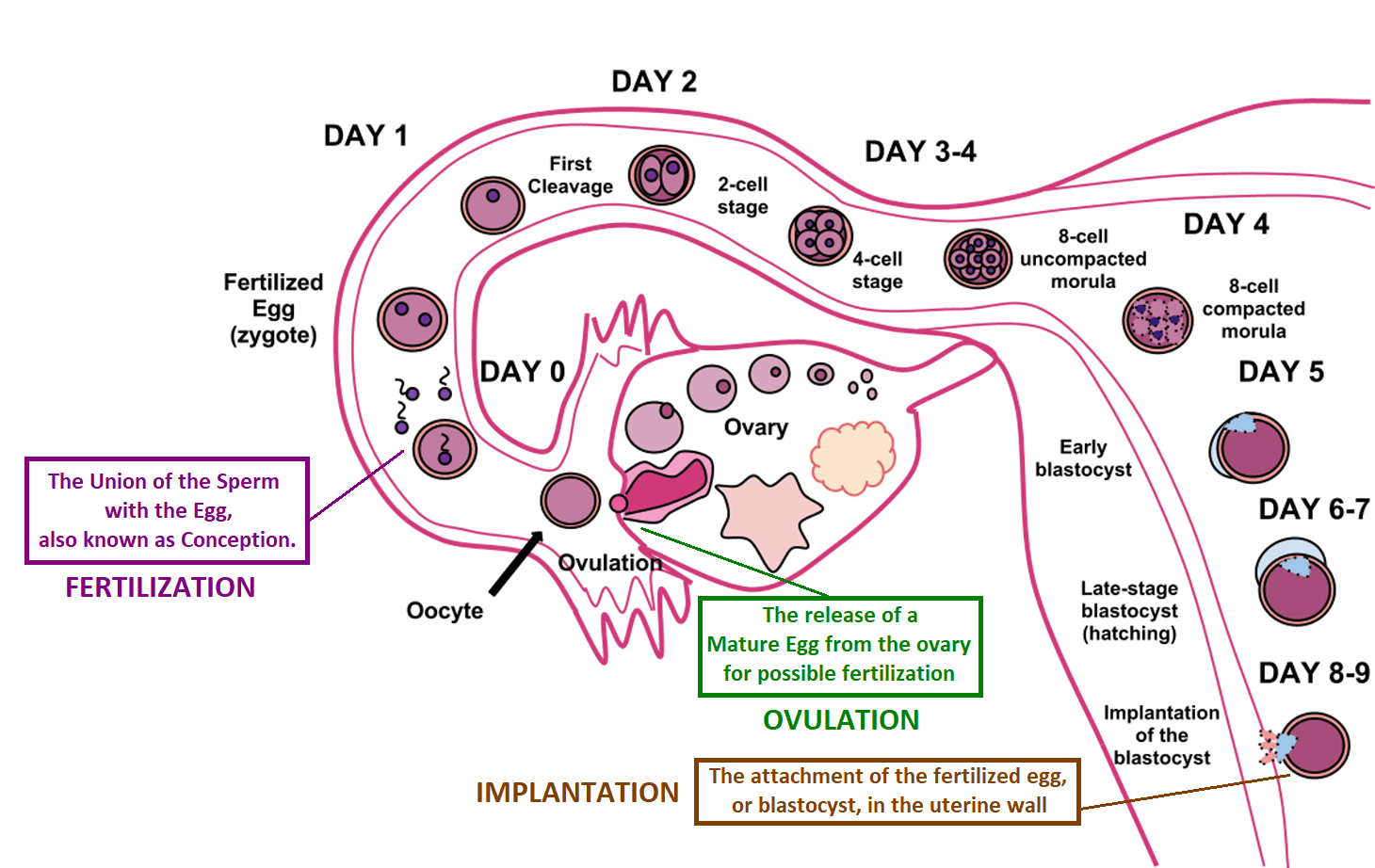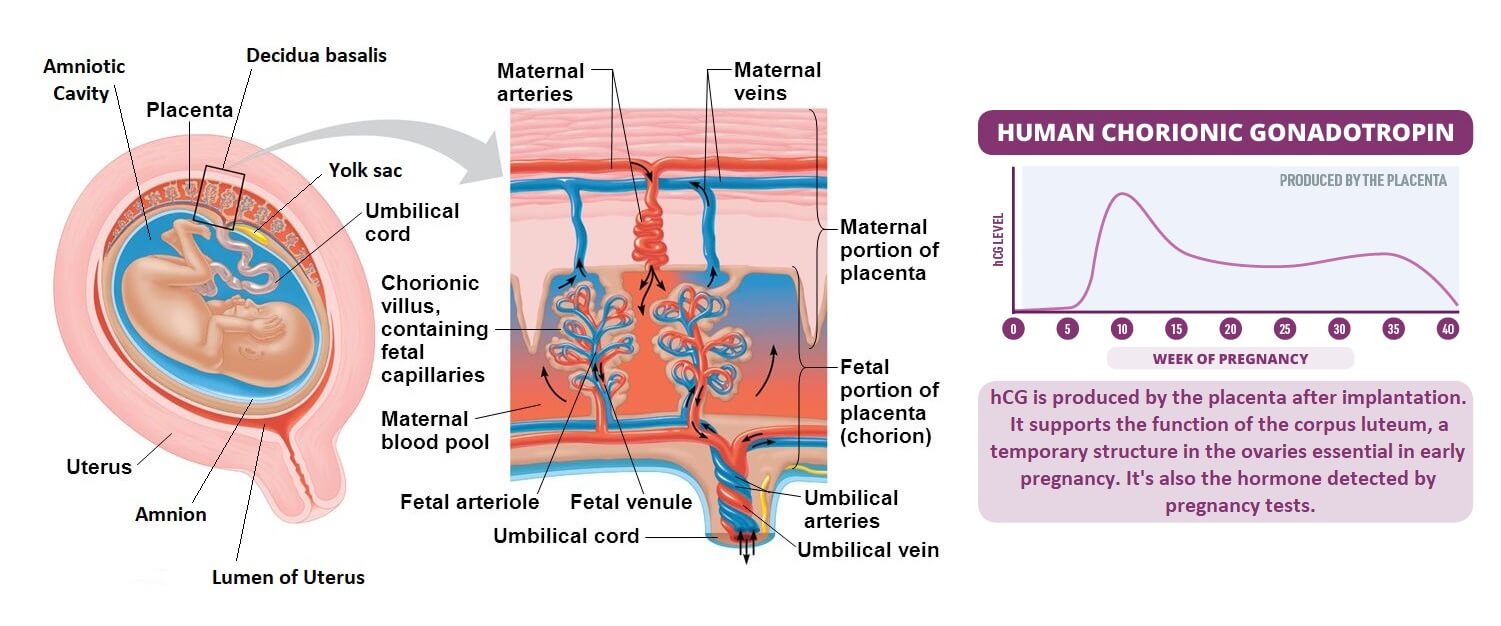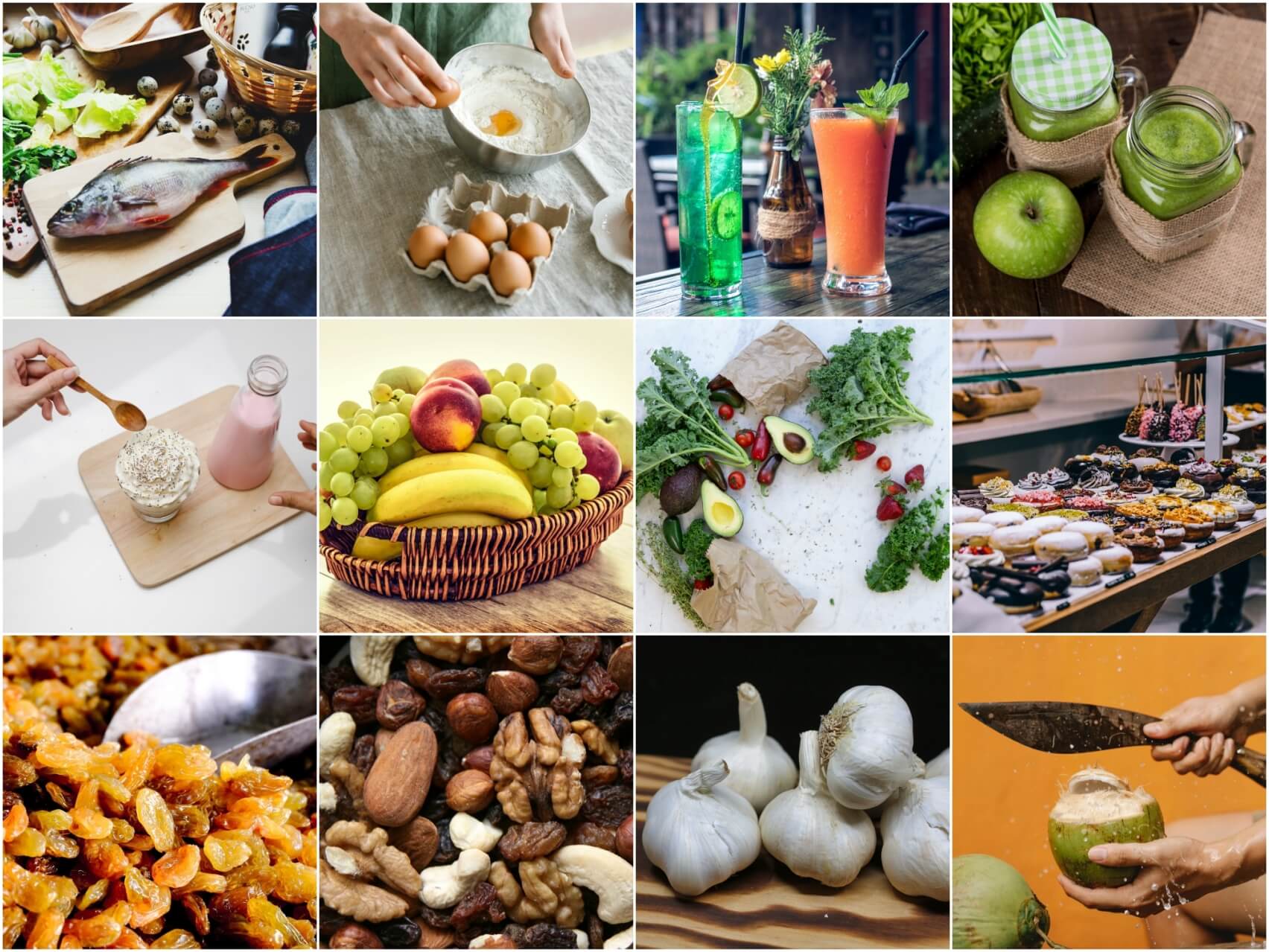Now a days, There are many options to have a baby, One is Natural process by Intercourse (Sex) and second one is In Vitro Fertilization (IVF) or Test Tube Baby without Intercourse. But we will discuss today about the natural process, where baby developed in the female womb when she get pregnant after Intercourse. If you are not from biology field, you may don’t know, how does Pregnancy happens? how a woman gets pregnant? how to I know am pregnant? you may have several confused queries in your mind. How to take care of your female partner if she got pregnant? what kind of diet you should follow during pregnancy? Today we will explain you all think here, so let’s get started with.
CONTENT INDEX
When does Pregnancy Begin?
Pregnancy starts from the first day of the last menstrual period. This is called gestational age or period of menstruation. It actually takes about two weeks to get pregnant. It may be strange for you, but the first day of your last menstrual period is an important date that determines your pregnancy.
How Does Pregnancy Occurs Step by Step?
Every month, your body goes through a reproductive cycle, which can end in two ways. You are menstruating or are pregnant. This cycle continues throughout the reproductive period, from puberty through adolescence to menopause around age 50. There are several stages in the cycle leading to pregnancy.
Firstly eggs (called an egg) are released from the ovary (the egg is released) and is ready to ovulate. The egg develops into a small fluid filled sac called a follicle. Think of these follicles as tiny blood vessels in each immature egg. One of these groups of eggs matures and continues the cycle. Then after, this follicle removes all other remained follicles in the group.
At this point, the growth of other follicles has been stopped, the mature follicle opens and an egg emerges from the ovary, This is called the ovulation. Ovulation usually occurs two weeks before the next cycle. This usually occurs in the middle of physiology. After ovulation, the open (ruptured) follicle becomes a structure called the Corpus luteum. It releases the hormones progesterone and estrogen.
Progesterone helps cut the lining of the uterus. The fertilized egg settles in this shell and develops. If you do not become pregnant during pregnancy, this layer is shed during menstruation and fertilization occurs on an average about two weeks after your last period.
As sperm enter the egg, changes are made to the egg’s protein shell, preventing more sperm from entering. At the time of pregnancy, the genetic makeup of the child is the correct sex.
The sex of the baby depends on the quality of the sperm at the time of fertilization. Typically, females have the XX gene and males have XY gene. As a mother, you give each egg an X. Each sperm can be either X or Y. If the fertilized egg and sperm are a mixture of X and Y, then you are a male, If you have two X’s, you’re female.
What Happens Immediately After Get Pregnant?
Within 24 hours of fertilization, the egg divides rapidly into a large number of cells. It remains in the fallopian tubes for 3 days after fertilization.
The fertilized egg (blastocyst) continues to divide as it slowly enters the uterus through the fallopian tubes. Once you get there, the next task is to attach it to the lining of the uterus. This is called Implantation but before implantation, the blastocyst peels off the protective membrane. When the blastocyst comes into contact with the endometrium, two hormones exchange the blastocyst.
In some women, minor bleeding (minor bleeding) occurs 1-2 days after implantation, But this is normal and there is no need to worry about. At this point, the endometrium thickens, the cervix (the opening between the uterus and the birth canal) closes with mucosal plaque, and the blastocyst disappears within 3 weeks. Ball or embryo formation. At this point, your baby’s first nerve cell, your baby’s name, may change during the first few weeks of pregnancy. A baby from conception to 8 weeks of development is commonly referred to as a fetus. From 8 weeks to delivery, the baby is called a fetus.
When do you know you were Pregnant?
From the moment of conception, human chorionic gonadotropin (HCG) is present in the blood. This hormone is produced in the womb by cells that make up the placenta, the baby’s food source. This hormone is also detected in pregnancy tests. These hormones are present in the beginning, but take time to build up in the body. Take the time to take a pregnancy test at home. This test is more accurate if you have enough hCG in your body. It usually takes three to four weeks from the first day of your last menstrual period for a pregnancy test to recognize you. Occurs several weeks after fertilization.
What should Eat or Avoid During Pregnancy?
Avoid To Eat During Pregnancy
During the Pregnancy, avoidance is always better than treatment, so you should be careful and avoid the following foods and drinks during pregnancy:
Alcohol: Even small amounts may increase the risk of complications from alcohol, such as miscarriage.
Seafood: Methylmercury in seafood negatively affects brain and fetal development. Include fish in your diet instead of seafood. Packaged/Processed Foods: Packaged foods may contain pathogens. So, don’t eat this packaged food.
Raw Meat: Raw meat can contain harmful parasites and bacteria.
What to Eat In First Month of Pregnancy?
The type and amount of food you eat has a huge impact on you and your fetus. So, you should eat less.
Folate-Rich Foods: Include natural foods rich in folate in your daily diet, such as potatoes, broccoli, eggs, nuts. Food’s rich in vitamin B6 include salmon, bananas, nuts, and whole grains.
Dairy products: Milk is an important source of calcium, protein, vitamins and healthy fats. Ingest at least 1 liter of milk and dairy products.
Fruits: Fruits are rich in vitamins and antioxidants. Try to eat at least 3 servings of fruit every day.
Sweets: Add at least 200-300 calories per day in the form of natural sugars, such as fresh fruits, cakes and iron-rich foods: to ensure continuous blood flow. To make putters, add foods such as oats, beans, beets, and nuts.
2nd Month of Pregnancy Diet
Foods rich in protein, calcium, folic acid and iron all affect the fetus blood, fetal ducts and bones.
Protein: Protein provides blood to your baby and helps your baby develop muscles. Protein Fish and Cheese Low-fat sources of folic acid: Folic acid, is an essential B vitamin that supports normal neural tube development. Sources of folic acid include spinach, beans, and fortified cereals.
Calcium: Calcium is needed to strengthen children’s bones. So, eat foods like dairy products and leafy vegetables.
Iron: You should take iron supplements to increase your blood supply.
3rd month of Pregnancy Diet
Important foods add to intake in 3rd month, Drink at least 10 glasses of water, fruit, and vegetable drinks per day to keep you and your baby hydrated.
4th month of Pregnancy Diet
Foods, that you can change in your diet from the 4th month.
Foods rich in iron: Blood volume increases dramatically (50% increase at birth). Increase your intake of high-quality protein, such as eggs and lean meat (organic/vegan if available). If you’re a vegetarian, eat iron-rich plant foods (such as leafy vegetables and legumes) and vitamin C (such as lemon juice or cayenne pepper) at every meal.
The body absorbs the Iron from Iron rich plants, not from the animal. Iron deficiency during pregnancy can lead to maternal malaise, low birth weight, and iron deficiency in newborns. So, if you have problems or feel very tired, talk to your doctor about taking iron and supplements.
5th month of Pregnancy Diet
Calcium is essential for your baby’s teeth and bones during pregnancy and helps your baby develop a healthy heart, nerves and muscles. Some good sources of calcium (at least twice a day): almonds, green leafy vegetables, small pieces of tibia such as dairy products (if permitted), Vitamin C – because your body uses vitamin C every day of is important. Vitamin C is needed during pregnancy to form cartilage, tendons, bones and skin, and to form collagen, a protein that helps the body fight infections.
6th month Diet for Pregnant Woman
Cereals, fruits, vegetables, and legumes are recommended to prevent constipation. This is equivalent to 5 large apples, 2 cups beans or 2 cups bran. Estimate your daily intake with this simple fiber calculation tool. Mix plantain seeds with a glass of water before bed to improve healthy gut function.
7th month Diet for Pregnant Woman
Protein: Getting enough protein during pregnancy is important for fetal development. Most women need about 80 g (2.8 g) of protein per day for a healthy pregnancy. Consuming this protein daily reduces the risk of preeclampsia, morning sickness and other complications. High-quality protein is very important because a low-protein diet can increase the risk of developing high blood pressure later in a child’s life.
8th month Diet for Pregnant Woman
Important foods add in 8th month. Omega 3 fatty acids: Your baby’s brain grows faster during the last stages of pregnancy. So, focus on adding omega-3 fatty acids to your diet, such as fatty fish like salmon, and walnuts. jute seeds.
9th month Diet for Pregnant Woman
Garlic: Consuming more garlic in the last months of pregnancy reduces the risk of premature birth. This is believed to be related to garlic’s antibacterial properties, which can help reduce urinary tract infections and genitals. which can aggravate premature birth. In this study, “excessive” consumption of garlic was equivalent to one clove of garlic per week. Mostly controlled! This promotes the possibility of vaginal labor (i.e. Reduces the need for induction), promotes greater cervical dilatation, accelerates the initial phase of labor, and reduces the need for pharmacological and pharmacological interventions.
Another recent study confirmed the findings of a previous study, “Consuming coconut palm in late pregnancy is a safe addition to the diet as it reduces the need for interventions during labor without affecting the mother and baby.” Use it as a fresh snack during the day or as a delicious natural sweetener in the kitchen.
Raisins: Eating two handfuls of raisins per week reduces the risk of premature birth and has the same effect as garlic. In addition, if you sweeten the raisins or add them to salads or rice, they explode every month. Good nutrition during pregnancy can have an important and lasting impact on your baby’s health and development, as well as the pregnancy and birth experience. With little reliable information on how to eat properly during pregnancy, I was encouraged to write a guide based on this fact so that your baby can start living the best life possible.
By Poonam chhapola
